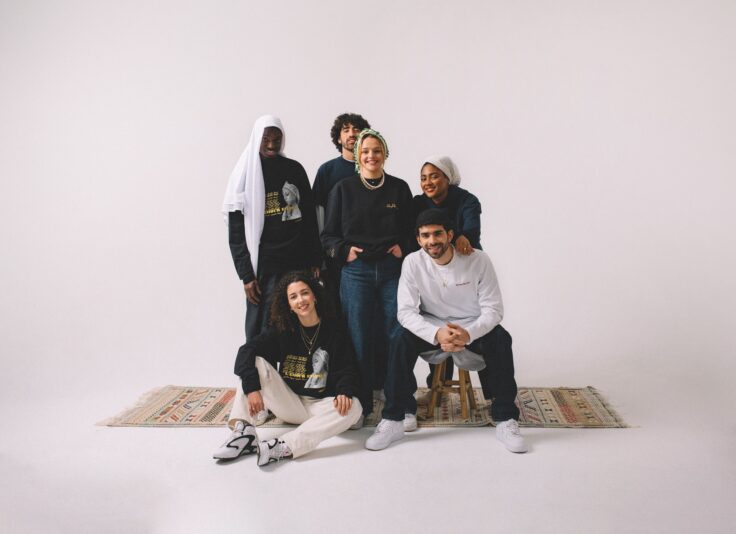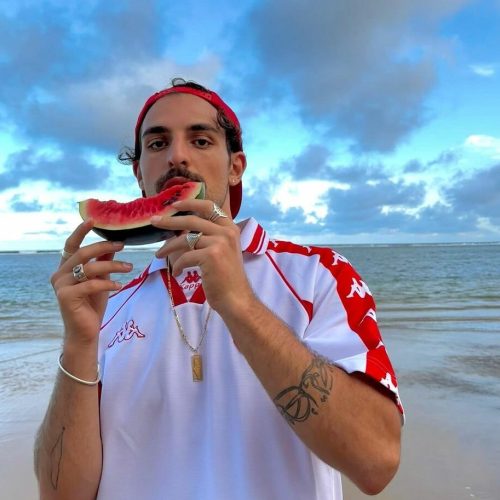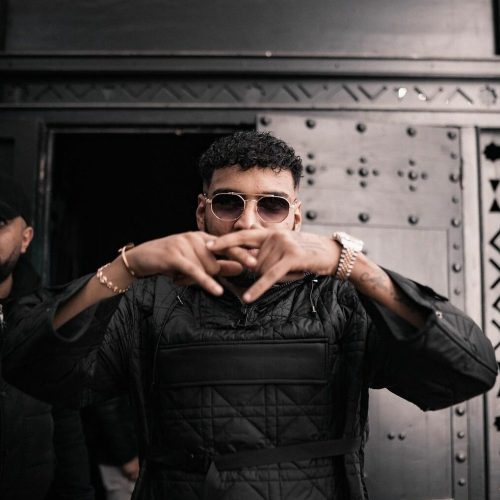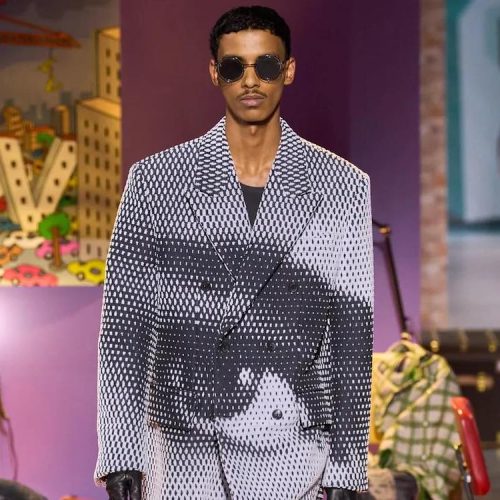Whilst the explicit use of bribery is becoming less and less common across the Middle East, there’s a much more subtle form that has carved its way through and plagued the almost entirety of the region. You’ve probably heard the term already: wasta.
In simple terms, it’s the use of influence and favouritism to reach one’s goal. In English, it can loosely be translated to nepotism. And a new label is wondering if it’s necessarily a bad thing?
Designed in Paris but heavily influenced and rooted in the Middle East’s rich and valuable history, the sober yet provocative label Wasta is giving nepotism a fresh new meaning while celebrating a mechanism people tend to usually curse.
Founded by the Lebanese-Moroccan duo Oskar and Badre-edine, Wasta released its first collection, “Chapter I”, in April 2021 which included a fresh range of heavy-cotton tee-shirts, hoodies and sweaters, all inspired by their roots, heritage and overall relationship with the region.
Most of you will use a pen and a piece of paper to recount the many tales the Arab world carries within itself but the two Paris-based designers have used fashion to give voice to the region. Heavy in connotation, the different patterns and designs are very reminiscent of the Middle East and North Africa’s historical anchors and notable events. Working in retail by day but talented designers by night, their thorough exploration of the area’s complex past and present is well embedded within their garments and clothing line.
Although their presence online remains quite shy, we’re adamant that it’s just a matter of time before things really take off for the duo. Slowly cementing themselves into the scene, we sat down with the brains behind the brand to talk influences, heritage and semantics.
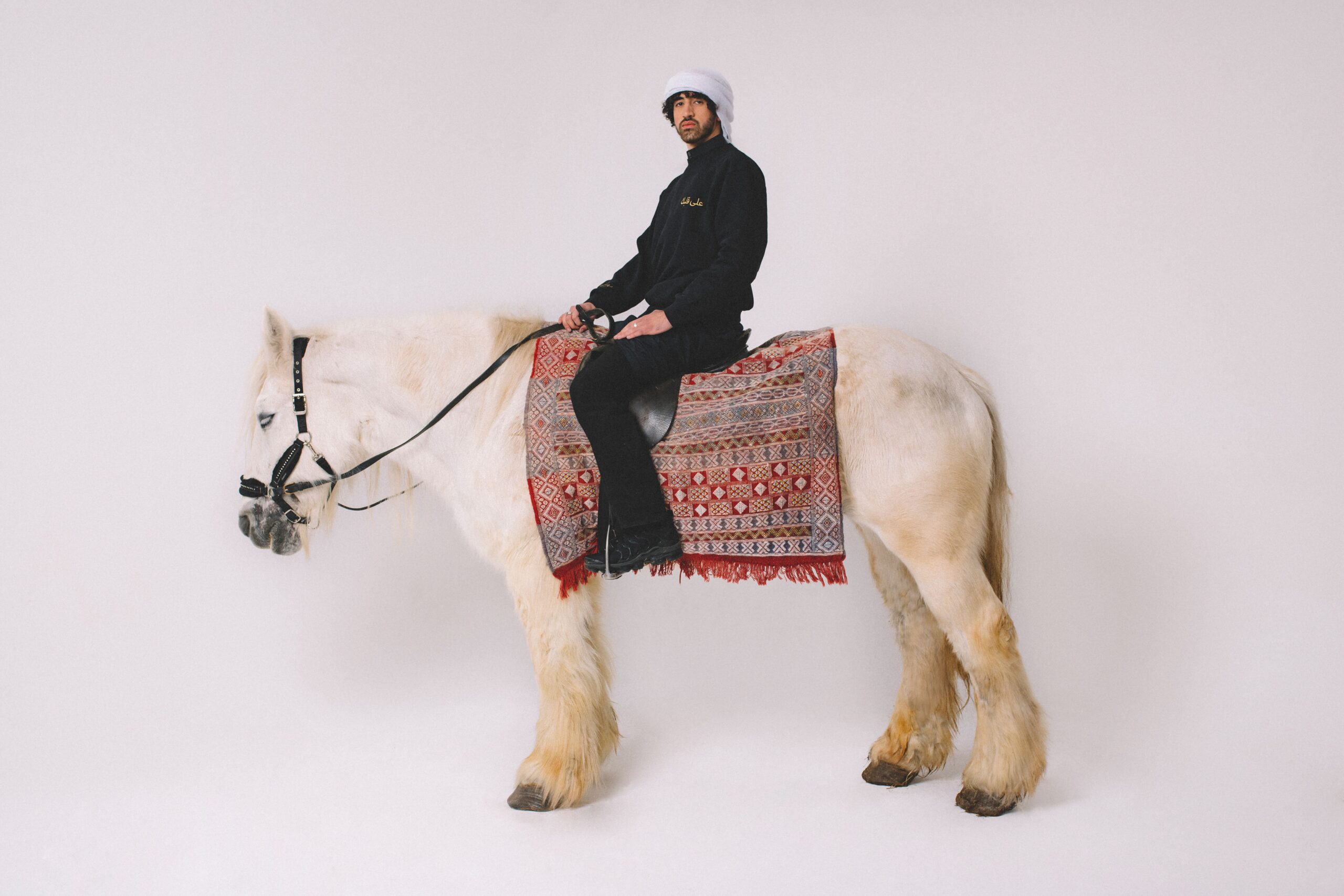 Could you introduce your brand to those who haven’t heard of it yet ?
Could you introduce your brand to those who haven’t heard of it yet ?
Wasta is a streetwear brand inspired by our North African and Middle Eastern traditions. We wanted to create it because there wasn’t a brand we could completely identify ourselves to as young individuals from the region. Growing up in France, with the global cultural influence the USA has had, we de-facto fell in love with streetwear culture and wanted to appropriate more while making it more “like us”.
What does Wasta mean ? What does it mean to you ?
Wasta in the Middle East refers to nepotism: when someone uses his position and/or influence to favour someone they know. It has a negative connotation because people who don’t have a Wasta here or there have much more difficulties getting whatever they need and it might be unfair in some situations. Usually it means getting something through favouritism rather than merit. However, we chose to take something negative (that we condemn by the way) and turn it into something positive as we believe that this is what we should always try to do in life, no matter what the situation is.For the record, when we were preparing for the brand’s launch, we were like “ok we do not have a Wasta so let’s be our own. Let’s be a strong team first, then use the friends and family’s energy” It’s all about ambition and getting to a place where you can be useful to your circle. Wasta is an ode to family, community and support.
There is also another interesting aspect regarding the word Wasta. In Arabic, we could also translate it literally as “intermediary”. The word وسط (wasat), which has the same root, means the “center” or “middle”. We also see ourselves as intermediaries in the middle between the East and the West and Wasta is the bridge between our roots and where we grew up.
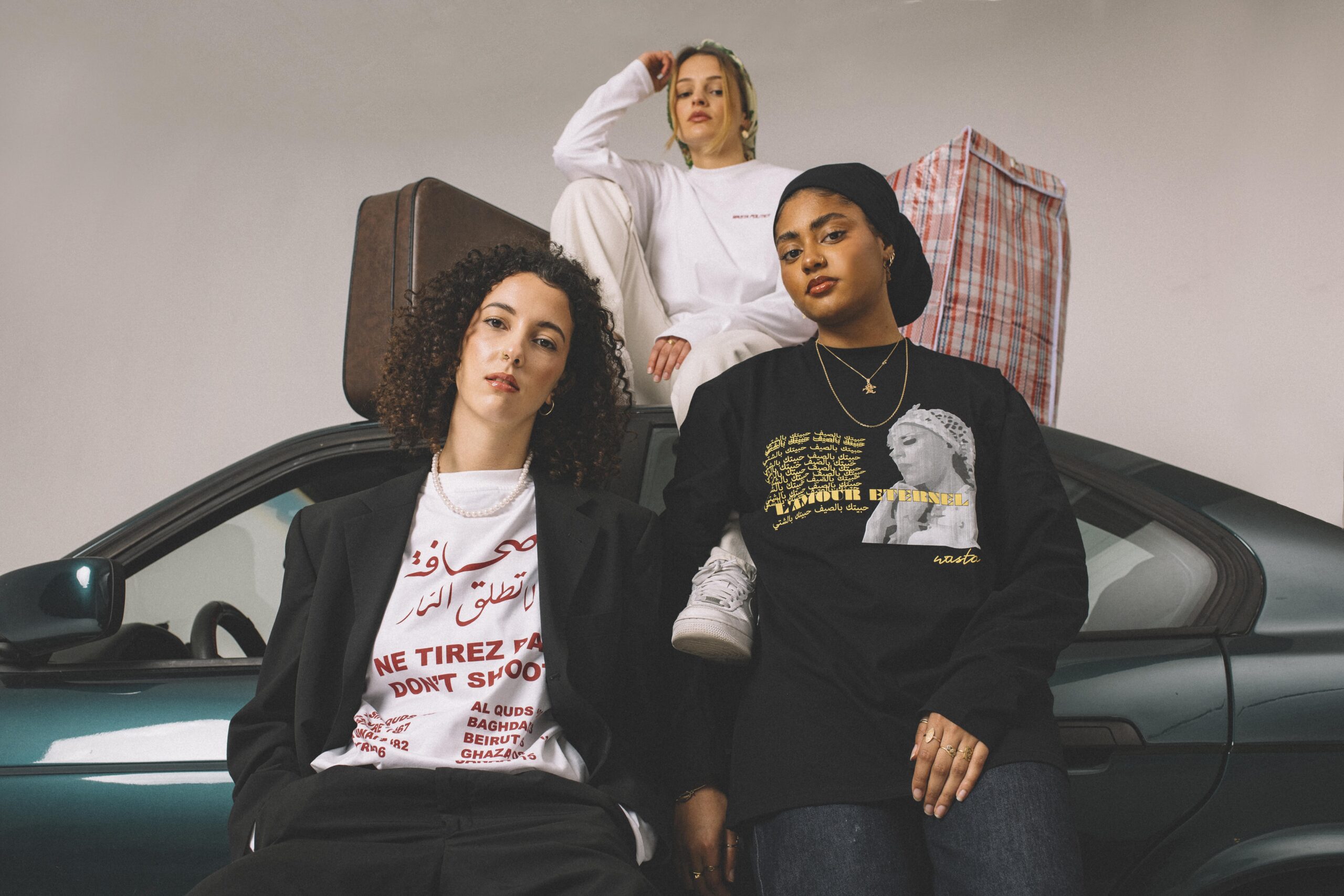 The whole aesthetic and aura of the brand is very slick and clean and also infatuated with implicit (and explicit) references to conflicts, wars and tensions that took place in the Middle-East. Why this emphasis ?
The whole aesthetic and aura of the brand is very slick and clean and also infatuated with implicit (and explicit) references to conflicts, wars and tensions that took place in the Middle-East. Why this emphasis ?
Emphasizing on these conflicts was important because we truly wanted to present a brand that isn’t afraid to take positions. A brand that is aligned with our values and what we believe in as individuals. This is why we feel like we have a strong foundation. We know our values and principles. This helps us in our decision-making process and in providing a product that is genuine and meaningful. In addition to that, as people from any Arab diaspora, we feel like the conflicts that took place in the Middle East have always been directly or indirectly present in our lives while growing up (aka seeing baba watch Al Jazeera in the living room). Even though we lived them from the outside looking in, it has always been a concern and it has also affected us in many different ways. We were naturally made more aware of the situation happening in the region. For instance, we recall our history classes and the frustration that came with them because we knew that, when it came to these conflicts, the whole story wasn’t being told. Because of this misunderstanding, these conflicts are also part of what shaped many stereotypes against Arabs in the West throughout the last decades.
But thank God, this is only one piece of the puzzle, our heritage mainly brought us beautiful things to showcase and we will try to do our best to do so in the next drops.
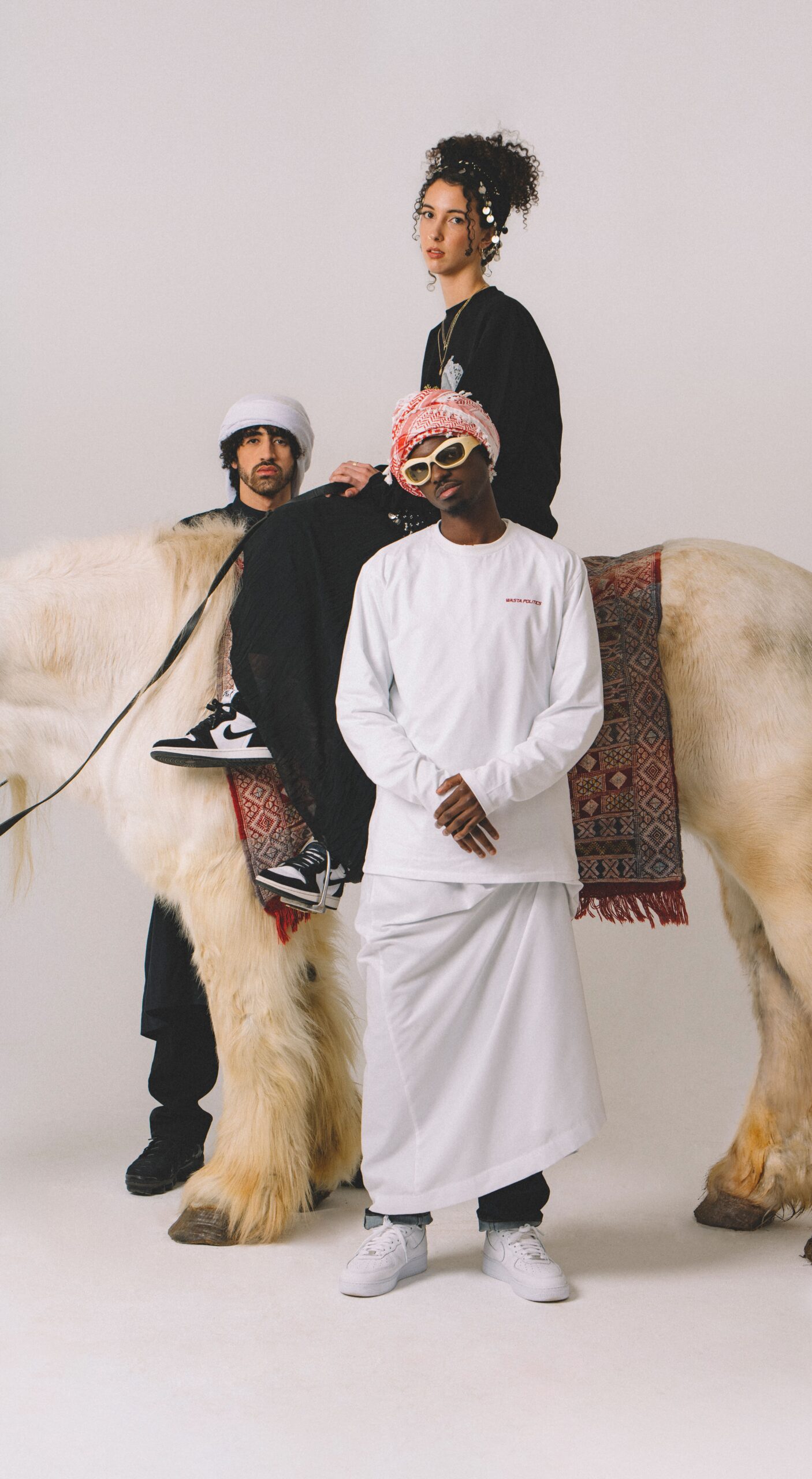 Based in Paris but from an Arab background. How did identity play into the brands DNA and designs?
Based in Paris but from an Arab background. How did identity play into the brands DNA and designs?
Identity was at the core of the brand’s DNA and designs for sure. Our origins are very important to us, they’re a big part of who we are. So, when we started the brand and created the designs, our identities played their part naturally. The fact that these designs came to our minds first means that they were rooted in the depths of our brains and hearts, and coming from our lives and our memories.
The common vector is that we were both born and raised in France from an Arab background which enables us to connect on many different levels. (By the way, we usually don’t use the word Arab to describe ourselves. We feel like it undermines the diversity of populations visible throughout the MENA region. We use it here, for convenience only.) However, while we have this in common, our life experiences still remain different. And that’s because identity is a complex thing, which can be multidimensional. For example, one of us is Muslim and the other is Christian. Being Arab in France doesn’t mean the same thing when you’re Christian and when you’re Muslim. Our life experiences don’t have to absolutely be the same, but they’re all worthy of being told because we value the diversity of our identities and we keep it in our hearts to present them through the designs we create and the stories we tell.
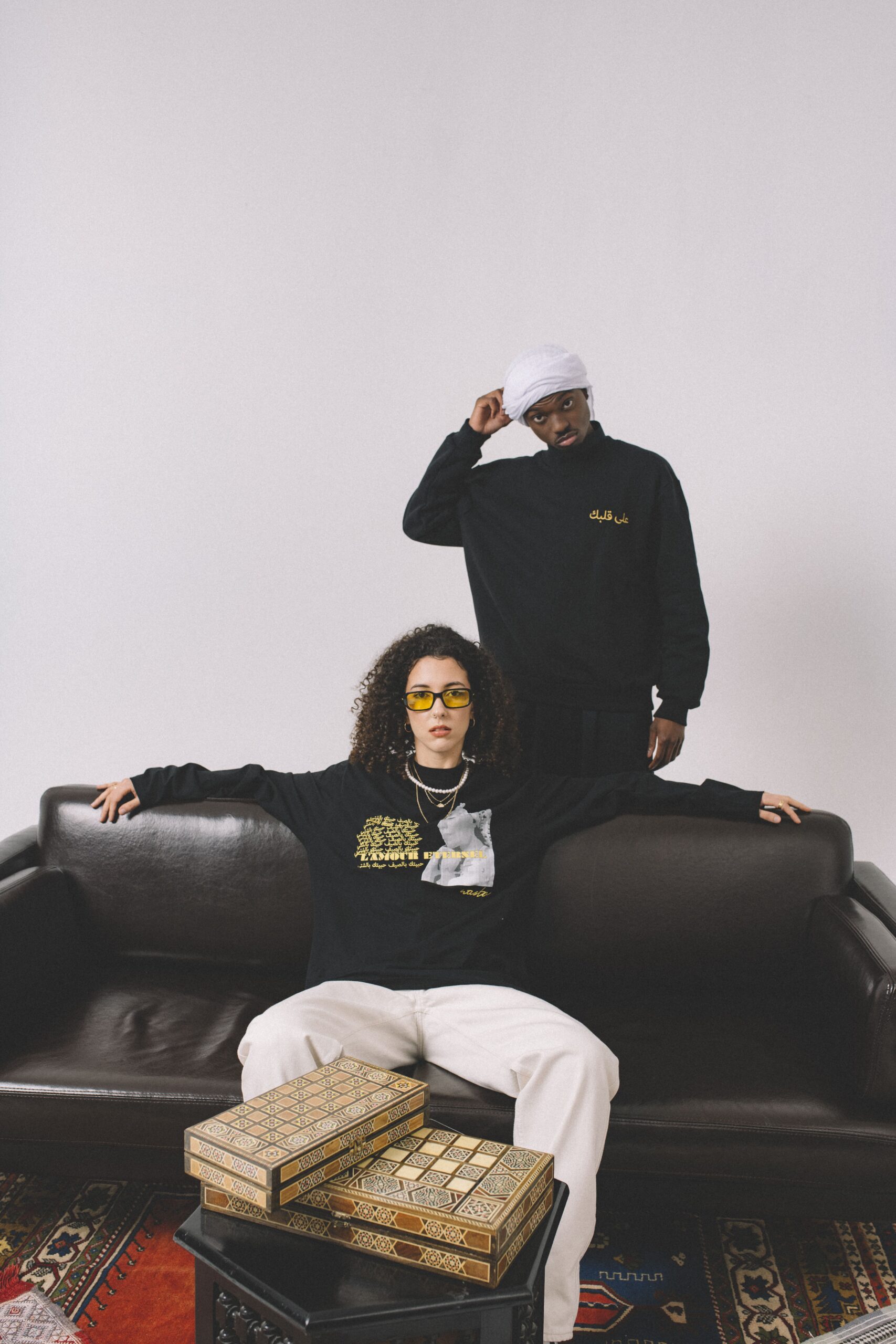 Having to explore and juggle between Paris and the Arab world, is this what you simply by “lel maximum always”?
Having to explore and juggle between Paris and the Arab world, is this what you simply by “lel maximum always”?
It is true though that the mix of Arabic and English in “Lel maximum always” exactly represents the exploration of both sides. It actually started as a gimmick because one of our friends used to say that he would party “lel maximum”. To us, that was a funny way to describe how hard he would party, so we started using it as a joke. Then, when we were discussing our partnership before starting the brand, we didn’t want business to get in the way of our friendship. We had to come up with strategies for when we wouldn’t agree. So, we came up with these strategies and we said : “however way we do it, your way or mine, after we choose, we do it lel maximum.” And the other answered “Lel maximum always habibi”. And this is the story of how “Lel maximum always” was born (both laugh). It represents our state of mind, which is to do everything in an intense manner. We want to provide the best quality of products and service to our customers. And, again, it was a funny way to mix our Arab and western influences through a simple sentence.
In one of your posts you mention having heavily been influenced by Rim’K, 113 and “Tonton du Bled” while on a whole tribute is offered to Fairuz through one of your garments. Do you see yourself as what most Arab gen-z have become: a blend of here and there having to balance between their roots and the west?
Most definitely. I’m sure if you check the Spotify of the MENA diaspora youth, you could easily find some Drake mixed with some Warda, Travis Scott or Nancy Ajram. It’s just a natural thing to have a balance between all of these influences. “Tonton du Bled” is also very interesting because it literally tells the story of people from the diaspora going back to their home countries over the holidays. It represents an era and a true phenomenon in French society. The design of our Wasta Airways T-shirt holds this idea in its essence. We really wanted to showcase this feeling of going back to visit your loved ones and being able to reconnect with your roots through this whole experience. Talking about roots, they’re the reason we discovered Fairuz. Of course, we wanted to pay tribute to this incredible singer and woman. But most importantly, she represents the unification of the whole MENA region. It’s crazy to see how her message was so powerful that it was able to cross generations and borders. Truly, our parents used to listen to Fairuz in Lebanon and in Morocco, and now, we listen to Fairuz in France. So, it’s only right we made the “L’Amour Eternel” tee-shirt in her honor.
Check them out: Wasta





